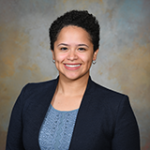Meeting the Challenge of Pain Management in an Ever-Evolving Opioid Epidemic
| Credits Available: | 4.5 AMA PRA Category 1 credit(s)™, 4.5 ANCC contact hours, 4.5 ACPE contact hours |
Assessment and treatment of pain are challenges for healthcare providers and health systems. Treatment with opioid medications can decrease pain functionality but also may result in opioid tolerance, dependence, misuse, and overdose. It is important that opioids be prescribed judiciously to prevent and/or mitigate these potential harms.
CME/CE Accreditation Information
Self Study
-
Meeting the Challenge of Pain Management in an Ever-Evolving Opioid Epidemic - Baseline Assessment
How much do you already know about safe opioid prescribing? This short self-assessment activity will let you test your knowledge about this ongoing public health challenge. Please follow the prompts to complete the self-assessment.
-
Self Study Module 1: The Epidemiology of Pain
Even before the COVID-19 pandemic, the opioid overdose epidemic had entered a fourth, increasingly deadly phase. This self-study module reviews the key epidemiologic trends that clinicians need to know about today’s challenging and constantly evolving pain management landscape.
-
Self Study Module 2: Assessment of Pain and Initiation of Treatment
Your initial assessment may be the most important factor in devising an effective pain management plan that also prioritizes patient safety. This self-study module outlines prescribing, patient education, and risk mitigation strategies for appropriate opioid prescribing.
-
Self Study Module 3: Acute Pain Management
How confident are you about when to use—and when to avoid—opioids for patients with acute pain? This self-study module will help you determine whether the benefits of a short course of opioids are likely to outweigh the risks.
-
Self Study Module 4: Chronic Pain Management
Chronic pain is common—yet it is uniquely challenging to manage appropriately, especially when the patient has risk factors for opioid misuse and/or comorbidities. This self-study module provides guidance on how to balance the benefits and risks/harms of opioid therapy.
-
Self Study Module 5: Prescribing Guidelines and Specialist Care
Healthcare providers who prescribe opioids must remain up to date on both federal and state requirements for opioid prescribing. These requirements change periodically, and it is up to the healthcare provider to make sure that they are familiar with the requirements that pertain
-
Self Study Module 6: Opioid Misuse and Opioid Use Disorder
Despite effective treatments for opioid use disorder, overdose death rates continue to climb. This self-study module shows how clinicians, including primary care providers, can improve outcomes in patients receiving opioid treatment through careful education and monitoring.
-
Meeting the Challenge of Pain Management in an Ever-Evolving Opioid Epidemic - Final Assessment
This Final Assessment will complete the Self Study section.
Live Group Discussions
-
Meet and Greet (optional)
Please use this session to gather the group and share an overview of the course plus answer questions.
-
Areas of Challenge Specific to the Group Regarding the Assessment and Management of Pain and Opioid Use Disorder
This Live Group Discussion will focus on the Baseline self-assessment and the content of the self-study modules. Group Members are encouraged to actively participate by discussing any challenges they are encountering and responding to other members' contributions.
Group Challenge
-
Assessing Pain and Developing a Treatment Plan for a Patient with Chronic Pain
This Group Task will enable you to practice the clinical skills that are necessary to safely and effectively prescribe opioids as part of a pain control treatment plan.
Curriculum is Currently Closed
Thank you for your interest. Currently, the curriculum is closed for enrollment but we encourage you to keep an eye out for future opportunities or alternative programs that might align with your educational goals.
Completed Groups
 Sergey Motov, MD
Sergey Motov, MDProfessor of Emergency Medicine
 Puneet Braich, MD
Puneet Braich, MDClinician
 Amanda Zimmerman, PA-C
Amanda Zimmerman, PA-CPhysician Assistant
 Karen Myrick, DNP
Karen Myrick, DNPassociate professor and nurse practitioner
 Melvin Rivera, PharmD
Melvin Rivera, PharmDClinical Pharmacy Specialist - Thoracic, Head and Neck Medical Oncology
 Mark Baskerville, MD, JD, MBA, MA
Mark Baskerville, MD, JD, MBA, MAAssociate Professor of Anesthesiology and Critical Care
 Elijah Parks, MD
Elijah Parks, MDMedical Doctor, Group Leader, MPH candidate
 Brian Policastro, PA-C
Brian Policastro, PA-CLead Physician Assistant
 Puneet Braich, MD
Puneet Braich, MDClinical Instructor
 Sergey Motov, MD
Sergey Motov, MDProfessor of Emergency Medicine
 Daniel Thibodeau, MHP, PA-C, DHSc
Daniel Thibodeau, MHP, PA-C, DHScAssociate Professor
 Kara Cossis, PA
Kara Cossis, PADirector Advanced Practice Providers
 Sarah Jax
Sarah JaxNurse Practitioner
 Theresa Baxter, MSN NP
Theresa Baxter, MSN NPNP
 Kristen Clancy, PharmD
Kristen Clancy, PharmDDirector
Medical Information Specialist
 Holly Canupp, PharmD
Holly Canupp, PharmDClinical Pharmacist Practitioner
 Haley Kemp, DMSc, MPAS, PA-C
Haley Kemp, DMSc, MPAS, PA-CPhysician Assistant
 Patricia Wesch, DNP
Patricia Wesch, DNPAdult Nurse Practitioner
 Puneet Braich, MD
Puneet Braich, MDClinical Instructor
 Puneet Braich, MD
Puneet Braich, MDClinical Instructor
 Summer Baumstark, M.M.S., PA-C
Summer Baumstark, M.M.S., PA-CPhysician Assistant
 Tammie Payne, NP
Tammie Payne, NPCRNP, CDCES
 Srijana Dhakal, FNP
Srijana Dhakal, FNPFNP
 Himayapsill Batista Quevedo, PharmD
Himayapsill Batista Quevedo, PharmDClinical Pain Pharmacist Practitioner
 Shuler Harmon, PharmD
Shuler Harmon, PharmDIndependent Consultant Pharmacist
 Kathryn Bacci, PA-C
Kathryn Bacci, PA-CPhysician Assistant
FNP
 Steven Lobel, MD
Steven Lobel, MDMD
House Officer Emergency Medicine
 Betty Lee-Hoang, MD
Betty Lee-Hoang, MDMD
Physician Assistant
 Amanda Zimmerman, PA-C
Amanda Zimmerman, PA-CPhysician Assistant
 Sherif Badawy, MD, MS
Sherif Badawy, MD, MSAssistant Professor, Hematology, Oncology and Stem Cell Transplant
 Jessica Geiger, PharmD, MS
Jessica Geiger, PharmD, MSPharmacy Coordinator
 Allen Fein, MD
Allen Fein, MDClinical Assistant Professor
Consultant
 Darren Mensch, PharmD
Darren Mensch, PharmDClinical Ambulatory Pharmacist - Population Health
 Mark Baskerville, MD, JD, MBA, MA
Mark Baskerville, MD, JD, MBA, MAAssociate Professor of Anesthesiology and Critical Care
 Frank North, Pharm.D.
Frank North, Pharm.D.Instructional Assistant Professor | National President, NPhA
 Stephanie Simon, MSN
Stephanie Simon, MSNNurse practitioner
 Telyssa Anderson, PharmD
Telyssa Anderson, PharmDClinical Pharmacy Specialist
 Amanda Ward, PharmD
Amanda Ward, PharmDNPhA Group Leader
 Brian Nambale, MD
Brian Nambale, MDPalliative Care Clinician
Medical Director
 Albania Mitchell, Pharm.D.
Albania Mitchell, Pharm.D.Visiting Assistant Professor
Owner, NP-C
 Atara Minster, PA-C
Atara Minster, PA-CPhysician Assistant
MD/Instructor
Nurse Practitioner
CLINICAL PROFESSOR EMERITUS
 Karen Myrick, DNP
Karen Myrick, DNPassociate professor and nurse practitioner
 Cuong Vu, MD
Cuong Vu, MDMedical Director
Pharmacy Affairs
 Brian Policastro, PA-C
Brian Policastro, PA-CPhysician Assistant
 Linh Le, PharmD
Linh Le, PharmDClinical Pharmacist
Vice Chief, Division of Hospital Medicine
 Shail Maingi, MD
Shail Maingi, MDAttending, DFCI Network Health Equity and Inclusion Liaison
Executive Director
 Monica Mikael, DNP
Monica Mikael, DNPNurse Practitioner
AHF Pharmacist - Strategic Response Team
Nurse Practitioner
 Latoya Freeman, DNP, APRN, ACCNS-AG
Latoya Freeman, DNP, APRN, ACCNS-AGDirector of Quality, Safety, and Patient Experience
CNS
 Cathleen Kilmartin, NP
Cathleen Kilmartin, NP Sean Conroy, MPAS
Sean Conroy, MPASPhysician Assistant
